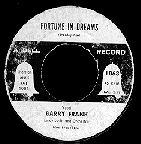 There is little of collectors' interest on the original Bell records of the '50s. They generally tended toward
cover versions of popular hits of the times, much as the Tops label did, or "generic" non-hit pop. They
were burdened with an unattractive label design that made them look more like cheap children's records,
right
down to the "Non-Breakable" tag proudly displayed on the bottom of the label. After Massler became
president, they concentrated more on albums, much like budget pop labels such as Strand. The
orchestral backup was first-rate on many of these, with bands such as Sy Oliver and Burt Bacharach
appearing.
There is little of collectors' interest on the original Bell records of the '50s. They generally tended toward
cover versions of popular hits of the times, much as the Tops label did, or "generic" non-hit pop. They
were burdened with an unattractive label design that made them look more like cheap children's records,
right
down to the "Non-Breakable" tag proudly displayed on the bottom of the label. After Massler became
president, they concentrated more on albums, much like budget pop labels such as Strand. The
orchestral backup was first-rate on many of these, with bands such as Sy Oliver and Burt Bacharach
appearing.
But generic pop music was dying out as the '50s closed, and by the turn of the decade, some changes needed to be made if the label was to survive. By 1959, the Bell label itself was almost inactive on the singles side, perhaps partly due to the aforementioned "image" problems. Instead of fighting Bell's established reputation when entering the rock and roll 45 marketplace, Massler shifted primarily to Mala and (later) Amy for singles, and used Bell as an album label. When one of the Amy singles ("The Madison" by Al Brown's Tunetoppers, Amy 804) unexpectedly hit, an album called Madison Dance Party [Amy A-1] was quickly issued. Actually, "The Madison," which made #23 on the Billboard charts nationally, would have been a bigger hit had not Columbia put out a competing song, "Madison Time" by the Ray Bryant Combo, which split sales (the latter made #30). A second Amy album [A-2], was a tie-in with Sick magazine (an early losing competitor to Mad).
By 1961, the Bell label itself was moribund, with a few albums and no singles being issued. The main activity was with Mala and Amy, each of which continued with about two dozen 45 issues per year, essentially without album issues. The Amy and Mala singles catalog was interesting, with most issues being well-produced stiffs, with an occasional chart single.
Larry Uttal, who was the owner of Madison Records, folded his Madison label and shifted his artists to Amy and Mala near the end of 1961. He purchased Bell/Mala/Amy outright some time between late 1961 and early 1964.
Near the end of 1963, previously-unknown Joey Powers had a Top-10 hit single seemingly out of nowhere, with "Midnight Mary" [Amy 892]. It was the biggest hit to date for the Bell group of labels. Uttal began a new album series on both Amy and Mala in 1964, and began a new singles series on Bell, reviving the latter from its years-long coma. He began the album series on Amy by reaching back a few months to Joey Powers' hit and putting out an album called Midnight Mary [Amy 8001], although the version of the title track on the album was a different recording from the hit single. Three collectible Del Shannon albums were also issued on the label. He also helped Lee Dorsey revive his career, and two Lee Dorsey albums were released on Amy.
To the Mala label, Uttal signed Ronny and the Daytonas, who were produced by Bill Justis. Their biggest hits were "G.T.O." and "Sandy," which were the title tracks for the two Mala albums [4001 and 4002, respectively] issued by the group.
A subsidiary, Sphere Sound, was formed in 1965 as a reissue label. Uttal leased material from the Fire, Fury and Herald labels to make a splash in the "oldies" market that was growing at the time.
The Bell label was reactivated for albums in 1966, with the new 6000 series. Later in the 1960s, the Bell label and its subsidiaries became a force in southern soul music. Uttal made production arrangements with several southern producers for material, including AGP in Memphis, Tennessee, Papa Don Productions in Pensacola, Florida, and Sansu (owned by Marshall Sehorn and Allen Toussaint) in New Orleans, Louisiana. He also made production arrangements with Thom Bell of Philadelphia, and established the Philly Groove label. He made arrangements with Bob Crewe for starting the DynoVoice and NewVoice labels. In the 1970s, Bell also distributed the Big Tree label.
In the early '70s, Bell moved into pop and softer rock, issuing collectible albums by David Cassidy, the Partridge Family, the Fifth Dimension, Tony Orlando and Dawn, Melissa Manchester, and Barry Manilow.
The Bell label and it's subsidiary labels were purchased by Columbia-Screen Gems in the late sixties, but Uttal remained part owner and President of the company until he sold his interest in 1974. When Uttal left, Clive Davis, just ousted from the Presidency of Columbia Records, became President, and instituted some significant changes. In 1974, the parent company, including all the Bell labels and the Columbia-Screen Gems labels (Colpix, Colgems, etc.), was renamed Arista Records. Some of the last album issues on Bell have the designation "Bell Records, Distributed by Arista Records, 1776 Broadway, New York, New York 10019." At the end of 1974, the Bell/Mala/Amy labels were scrapped and the artists either let go or taken over by Arista. Bell's early-1970s mainstay artists Dawn (with Tony Orlando) signed with Elektra, and the Fifth Dimension went to ABC. Others were dropped. During this period of transition, promising rock and roll artists such as Suzi Quatro and Hot Chocolate were farmed out to Big Tree. Hot Chocolate's "Emma," which was originally on Bell [45,466], eventually made top-10 on Big Tree in early 1975. Potential big pop moneymakers, however, such as Barry Manilow, the Bay City Rollers, and Melissa Manchester went to Arista. For Bell, it was over.
After leaving Bell, Larry Uttal started the Private Stock record label. Continuing his longtime association with Bob Crewe, he signed the Frankie Valli and Four Seasons to Private Stock, which started the label with a major group. It had many big hits with various artists, although it was only in business a few years.
There are many albums on the Bell labels that collectors seek out today. In the soul music genre, there are great albums from the '60s by the O'Jays, Van Dykes, James & Bobby Purify, and Oscar Toney, Jr. For rock and roll collectors, there are albums by Alex Chilton and the Box Tops, the Syndicate of Sound, the first Spooky Tooth album, and the second album by fifties rock and roller Dale Hawkins of "Susie Q" fame [Bell 6036]. In 1973, Bell issued an album by the great Memphis songwriter Dan Penn called "Nobody's Fool" [Bell 1127]. To R&B and blues collectors, the Sphere Sound label is very interesting. Even though the songs are reissues of material that originally appeared on the defunct Fire, Fury and Herald labels, in some cases it was the first time the material ever appeared in album form. This is the case for the Wilbert Harrison, Elmore James, Bobby Marchan and Kodaks/Starlites albums. The Lightnin' Hopkins and Gladys Knight and the Pips albums are reissues of very rare albums that originally appeared on Fire [LP-104] and Fury [LP-1003], respectively. The Lee Dorsey album is not an exact reissue of his Fury album [LP-1002] but it has many of the same songs. The Maurice Williams and the Zodiacs album is a straight reissue of his rare album on Herald [HLP-1014]. All of the Sphere Sound albums are now commanding big bucks in auctions. There were also three gospel albums on Sphere Sound, but the source of this material is unknown to us.
On the labels distributed by Bell, there are several noteworthy efforts. The Hot Line Music Journal's only album was the first album by future soul superstar Al Green, based on the strength of a minor hit on the label called "Back Up Train". The Thom Bell-produced Philly Groove label was primarily a vehicle for material by the soft soul group the Delfonics, although the label had other artists including First Choice and Ben Aiken. Bell distributed the Goldwax label. Bob Crewe, the producer for the Four Seasons had two labels distributed by Bell, DynoVoice and NewVoice. Mitch Ryder was the most consistent hitmaker on the labels, and there were several albums issued on each.
This discography covers all of the Bell labels, and Bell-distributed labels, to the point where the name was discontinued at the end of 1974. This discography was constructed using our personal record collections, Schwann catalogs, and other discographical resources.
We would appreciate any additions or corrections to this discography. Just send them to us via e-mail. Both Sides Now Publications is an information web page. We are not a catalog, nor can we provide the records listed below. We have no association with Bell Records, which is currently owned by Arista. Should you want to contact Arista, or should you be interested in acquiring albums listed in this discography (which are all out of print), we suggest you see our Frequently Asked Questions page and follow the instructions found there. This story and discography are copyright 1999 by Mike Callahan.
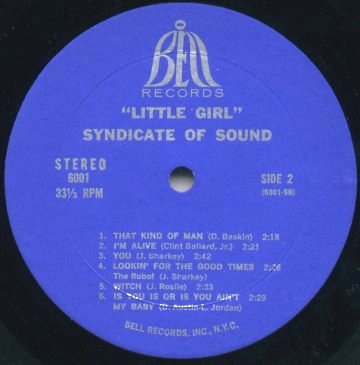 The Bell/Amy/Mala Story
The Bell/Amy/Mala Story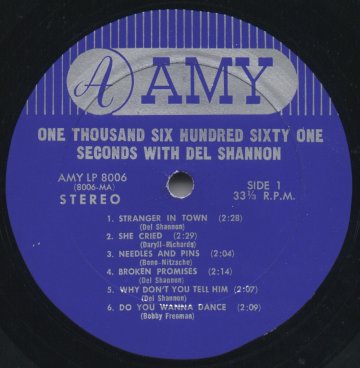 On to the Amy Album Discography
On to the Amy Album Discography On to the Mala Album Discography
On to the Mala Album Discography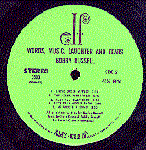 On to the Bell Related Labels Discography (Elf, Hot Line Music
Journal, Sunburst)
On to the Bell Related Labels Discography (Elf, Hot Line Music
Journal, Sunburst) 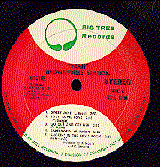 On to the Big Tree Album Discography
On to the Big Tree Album Discography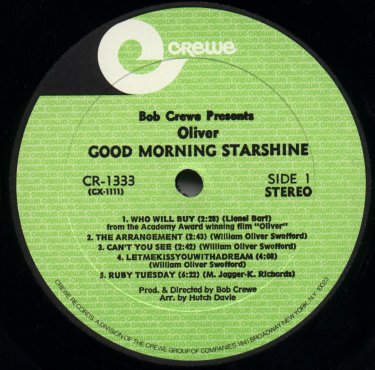 On to the Crewe Album Discographies
On to the Crewe Album Discographies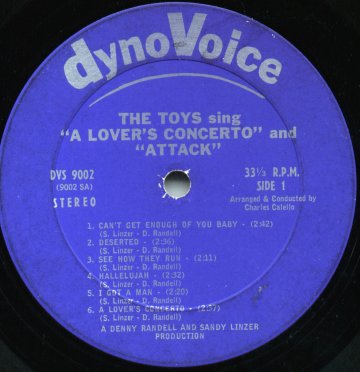 On to the DynoVoice Album Discography
On to the DynoVoice Album Discography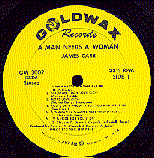 On to the Goldwax Album Discography
On to the Goldwax Album Discography On to the Madison Album Discography
On to the Madison Album Discography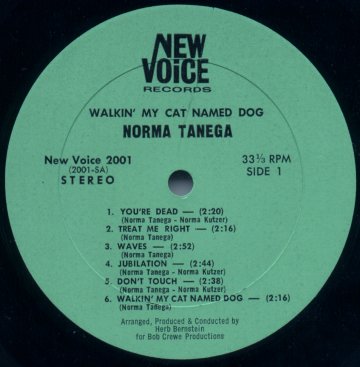 On to the NewVoice Album Discography
On to the NewVoice Album Discography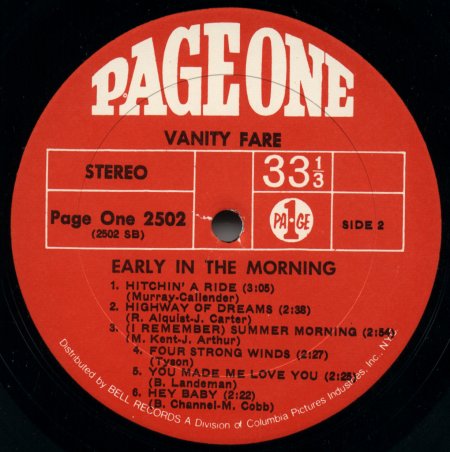 On to the Page One Album Discography
On to the Page One Album Discography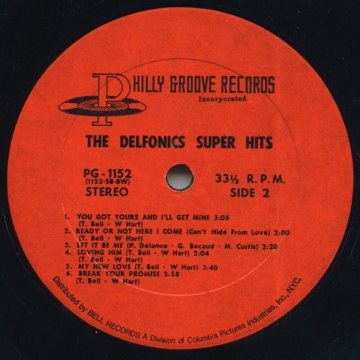 On to the Philly Groove Album
Discography
On to the Philly Groove Album
Discography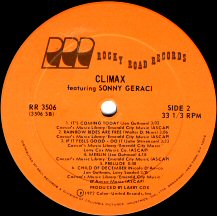 On to the Rocky Road Album Discography
On to the Rocky Road Album Discography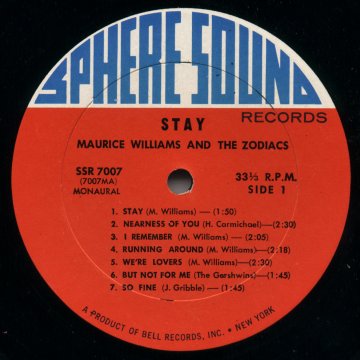 On to the Sphere Sound Album Discography
On to the Sphere Sound Album Discography
 On to the T-A Album Discographies "Talent
Associates"
On to the T-A Album Discographies "Talent
Associates"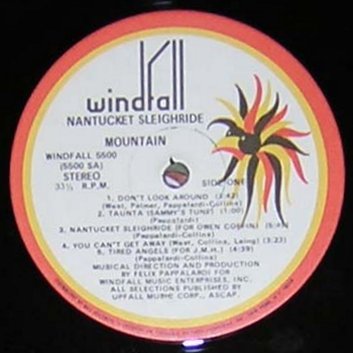 On to the Windfall Album Discographies
On to the Windfall Album Discographies Back to the Discography Listings Page
Back to the Discography Listings Page